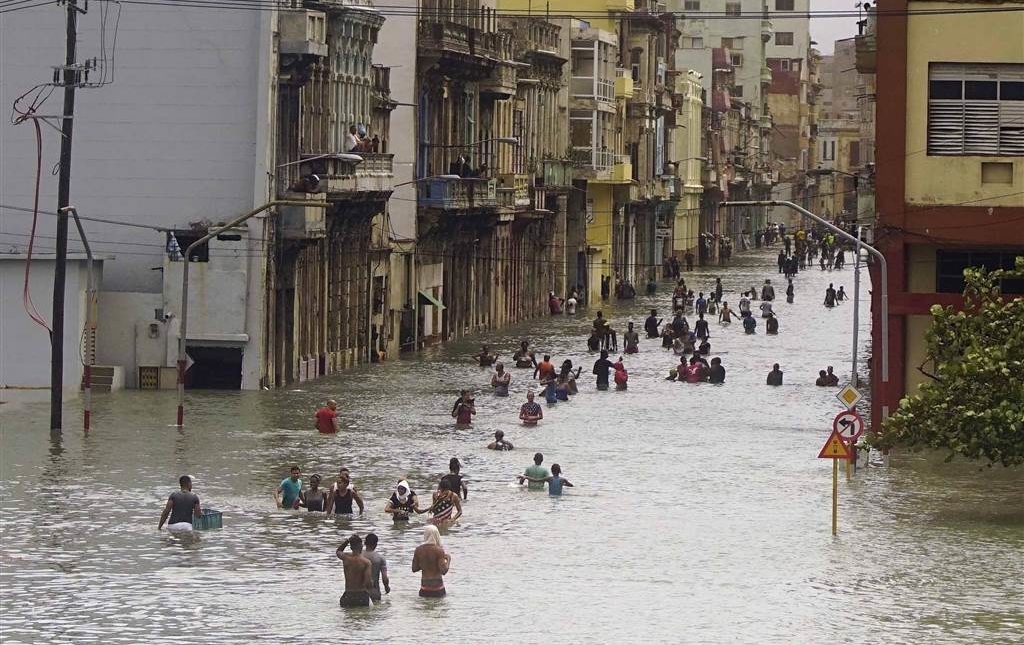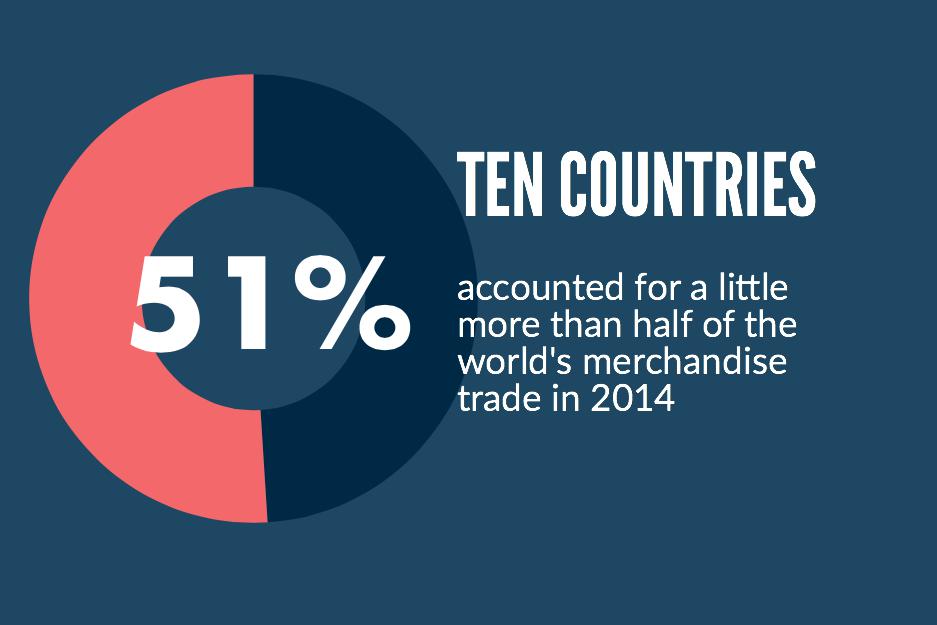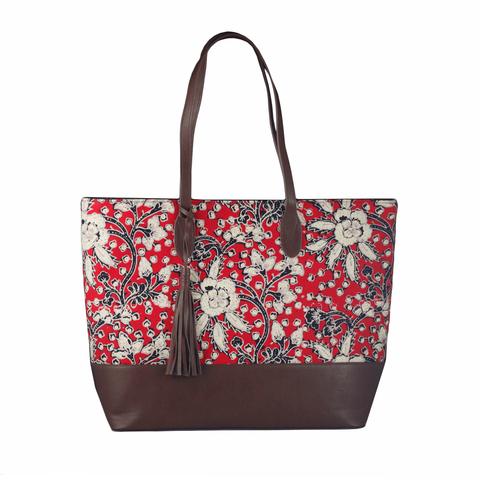Humanitarian Relief: The Most Urgent Among Reasons for Trade Facilitation
Extraordinary Circumstances
Every minute and hour count in the aftermath of life-threatening emergencies such as large scale natural disasters.
Not every country can go it alone. Trained personnel, equipment, and assets must be deployed to conduct rescue missions, provide relief to victims, and assist with recovery and reconstruction efforts. Just before Hurricane Irma made landfall in the United States, the storm ravaged the Caribbean, rendering thousands of residents homeless, without electricity, and facing shortages of food and clean water. Organizations like the World Food Programme (WFP) serve a vital role delivering provisions in emergencies. They work to pre-position supplies but also quickly distribute life-sustaining products. After Irma, WFP delivered high-energy biscuits to 80,000 people taking refuge in shelters in Haiti.
Behind the scenes, private donors and relief organizations work to navigate customs requirements and procedures at the borders of countries struck by disaster, or they negotiate with neighboring countries to clear supplies that can reach victims just over their borders. But customs bottlenecks are among the most common obstacles cited by the humanitarian community to delivering aid quickly.
Extraordinary Needs
Border officials can get overwhelmed by the increased volume of imported goods that often include regulated food and medicines as part of relief consignments. At the same time, customs agencies do not always have plans in place to waive normal duties, fees, and charges on these special shipments. Excessive documentation and inspection requirements can also cause significant delays and unnecessarily increase the cost of delivering aid.
In fairness to customs authorities, their challenge is considerable to ensure the safety and appropriate marking and release of donated shipments arriving from all manner of well-intended sources, particularly for countries with constrained resources and insufficiently trained personnel. However, the inability to manage imports of relief items has significant consequences beyond raising the costs of assistance. Life-saving provisions that are essential at the start of relief efforts might fail to reach the intended recipients in time or in proper condition to make a difference. For example, in Indonesia and Sri Lanka, perishable food items rotted and medicines expired before they could reach victims of the 2004 Indian Ocean tsunami, according to World Bank analysis.
Extraordinary Measures
The World Customs Organization has provided guidance and recommendations for how countries should handle relief consignments in the event of disasters. They include measures to expedite processing by simplifying documents, waiving fees and duties, and ensuring that customs clearance is made possible outside of normal operating hours and locations. Countries can work with charitable organizations in advance of emergencies to develop lists of trusted providers. They should also put in place guidelines to ensure that equipment like ICTs used by relief workers to communicate with one another are donated to the proper authorities and not allowed be re-exported.
Working to put extraordinary procedures into place before disaster strikes, and to train customs personnel so they are empowered to follow those procedures, is important to build into disaster preparation plans. Even in cases where humanitarian organizations were able to quickly forge agreements with government authorities for the delivery of supplies, it is still far preferable to reach agreements in advance on extraordinary measures so the procedures can be known to the humanitarian community and to their private sector partners, and can be implemented immediately and predictably, rather than on an ad hoc basis.
Good Processes Have to Be the Normal State
We’ve offered a few background articles on the WTO Trade Facilitation Agreement (TFA) in our Essentials. The agreement includes commitments designed to speed goods through the border by cutting red tape, reducing fees and charges, helping goods transit through third countries, and encouraging cooperation among customs authorities. For example, the agreement includes a commitment to give binding advice to traders through so-called “advance rulings” on the customs rates that will be applied to their goods, so that this does not become a source of time-consuming debate with border officials. Likewise, the agreement requires customs authorities to accept and process customs paperwork before the goods arrive at the port, and to release goods even before the final determination of customs duties, further reducing delays.
This is what the WTO Members have agreed “normal” should look like. It’s the first trade agreement in the WTO that includes commitments and funding to provide capacity building and training to members who request it. The WTO has estimated that full implementation of the TFA could reduce trade costs by an average of 14.3 percent with the biggest gains accruing to poorer and developing countries. In addition to facilitating the normal course of trade and reducing the costs and time associated with customs transactions, full implementation of TFA would help ensure that customs authorities are capable of implementing special procedures when international disaster responses are most needed.
After Typhoon Haiyan struck the Philippines, authorities had to cope with ten times the normal volumes of shipments. They quickly established “single windows” to ensure that all departments involved in clearing shipments could be accessed at once, which expedited the process and facilitated good communications. However, many countries have been working for years to implement single windows for commercial shippers and it’s certainly better to have them in place before such an emergency. Unfortunately, criminals will also take advantage of emergency situations to ship illegal items. Ensuring customs officials are well trained to clear goods in normal times using risk-based approaches will help reduce the opportunity for abuse in emergencies.
The Benefits of Trade Facilitation are Many
The World Bank has emphasized that simplified and expedited procedures are not only important during the immediate response to disasters, but should be kept in place as appropriate during the recovery and reconstruction phase to ensure that hard hit areas can receive the materials, personnel, and equipment needed to rebuild.
The benefits of upgrading customs procedures extend beyond natural disaster relief and beyond humanitarian assistance in other types of cases such as delivering aid to people suffering from extreme poverty or affected by conflict, though these are certainly among the best and most urgent reasons to implement best practices in border management.
Feature Image Credit: People move through flooded streets in Havana after Hurricane Irma. (AP)
Andrea Durkin is the Editor-in-Chief of TradeVistas and Founder of Sparkplug, LLC. Ms. Durkin previously served as a U.S. Government trade negotiator and has proudly taught international trade policy and negotiations for the last fifteen years as an Adjunct Professor at Georgetown University’s Master of Science in Foreign Service program.








